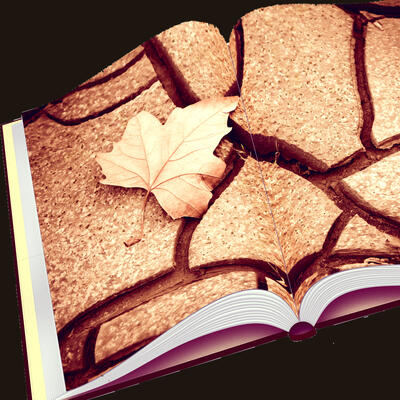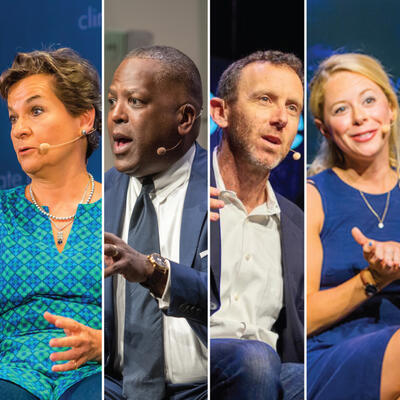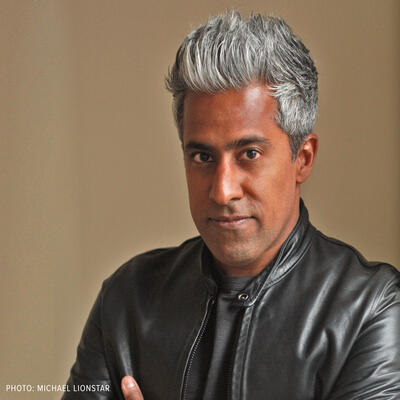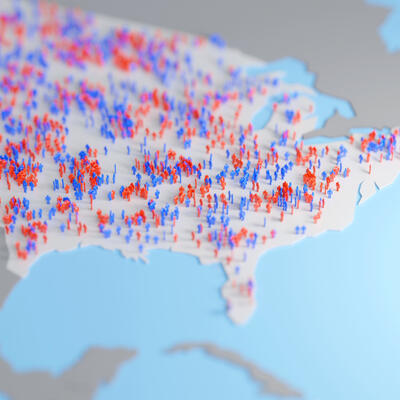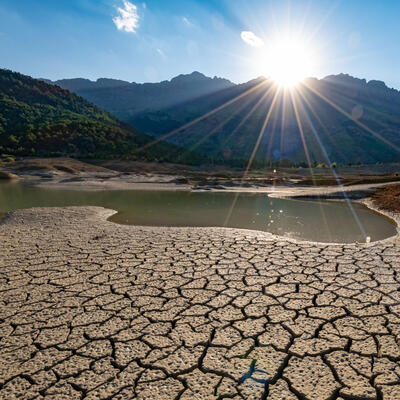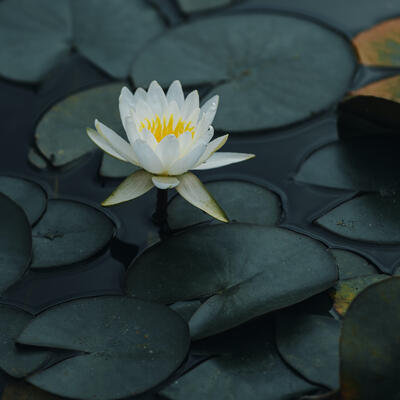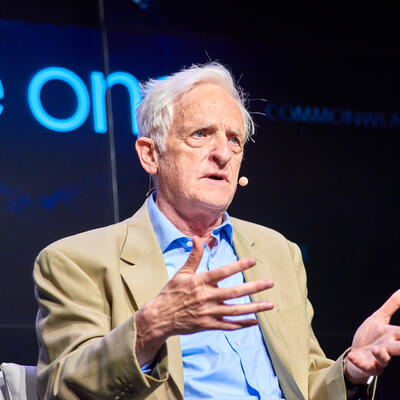
We're Doomed. Now What?
Guests
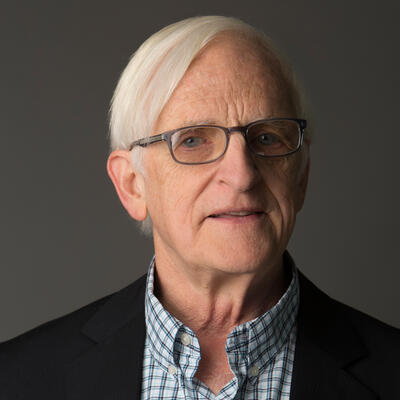
Matthew Fox
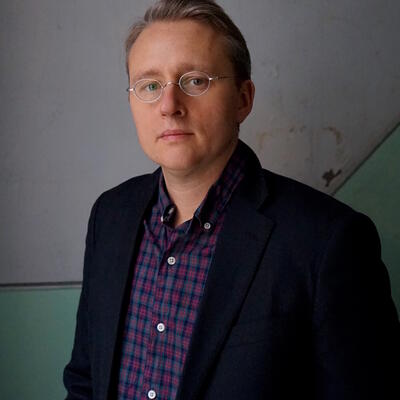
Roy Scranton
Summary
Can changing our consciousness hold off the climate apocalypse? When we think about the enormity of climate change and what it’s doing to our planet, it’s easy to get overwhelmed, even shut down, by despair. But is despair such a bad place to be? Or could it be the one thing that finally spurs us to action? A conversation about climate change, spirituality and the human condition in unsettling times.
Full Transcript
Announcer: This is Climate One, changing the conversation about energy, economy and the environment.
When we think about the enormity of climate change and what it’s doing to our planet, it’s easy to get overwhelmed, even shut down, by despair.
Matthew Fox: So I think despair is a luxury we can’t afford today. I think we've got to gin up the love of life, the love of our children not yet born even and change what has to be changed.
Announcer: But is despair such a bad place to be? Or could it be the one thing that finally spurs us to action?
Roy Scranton: I think going into the hard dark difficult thing and staying there, is the only way I think that we’re gonna come up with some new way, some better way to deal with the realities of the situation. So I'm all for despair.
Announcer: We’re Doomed - Now What? Up next on Climate One.
Announcer: Can changing our consciousness hold off the climate apocalypse?
Welcome to Climate One – changing the conversation about America’s energy, economy and environment. Climate One conversations – with oil companies and environmentalists, Republicans and Democrats – are recorded before a live audience, and hosted by Greg Dalton. On today’s program, we explore the climate within our souls. Can we find meaning in these precarious times?
Matthew Fox: And this I think is the silver lining in all this darkness. There’s an invitation, remember the word apocalypse also means revelation. So we’re in an apocalyptic time. But we also gotta realize the breakthrough is there too.
Announcer: Matthew Fox is an internationally acclaimed priest, theologian, activist and author. His latest work is “Order of the Sacred Earth: A Vision of Intergenerational Love and Action.”
Greg’s other guest today is Roy Scranton, author of “War Porn,” “Learning to Die in the Anthropocene” and his latest: “We’re Doomed. Now What?” Despite the pessimistic title, Scranton does see a glimmer of light in the darkness.
Roy Scranton: If I had hope like this is where it would be, in that capacity of human for self-reinvention, the capacity for human adaptation, the capacity for giving our lives meaning and changing what that meaning is, even in the worst circumstances.
Announcer: Here’s our conversation about climate change, spirituality and the human condition.
Greg Dalton: Roy Scranton, you write that you were a kid who loved to read. You cried at the slightest provocation. And then after 9/11 you joined the Army to go to war and be a man. And you write that in 2003 in the brutal warm days of Iraq “were some of the sweetest and purest days of your life. Each moment gleamed with transcendent splendor.” So tell us how a sensitive kid ends up in Iraq high on war?
Roy Scranton: I’m glad you started with the light stuff.
Greg Dalton: Get right to it.
Roy Scranton: So there were a lot of reasons, a lot of factors that went into my decision to join the military. I was a working-class kid, I grew up in a military family and first-generation college student; for a variety of reasons that didn't work out at first. And I wound up with a lot of student debt and just working and always with the idea that I was transforming myself into some kind of writer or something that that's what I would do.
And then September 11th happened. You know, events on very different scales, but that sent me back home where I realized that things were sort of an impasse.
And so a way out seemed to be through joining the military. I had the college money, I’d be able to understand how our world was changing, which was something I thought about and struggled with a lot after 9/11, you know, what does this mean, what’s changed. And, yeah, you know, the part you mentioned about the emotions of being in that kind of dangerous place those are difficult often still sometimes to reflect on and reckon with. It’s a range of very intense emotions. Yeah, and I tried thinking about it and writing about it to really be honest about those and be true to how it felt and not let it sort of fold into some other kind of a bit more, you know, easily swallowed story about how it wasn't.
Greg Dalton: And you write that you -- Samurais meditate on death. Tell us about how you would meditate every morning when you were in Iraq.
Roy Scranton: Yeah, so this is one of those uncomfortable feelings was I was afraid. I was really scared. We were running missions all over Baghdad picking up old Iraqi munitions and stuff was blowing up. IEDs were just getting going, there were occasional ambushes and things like that. And so I was terrified. I drove the lead vehicle in the convoy because I was the battery commander’s driver.
So he was on me like I was among the people responsible not only for leading the convoy but for spotting any IEDs on the road. And if it didn’t hit us they would hit the people behind us. And so, you know, that felt like a burden that I had a lot of trouble bearing, right, because it was scary. I’d be very anxious, very tensed driving around to the point where I felt like it was starting to impact my ability to do my job, right. I was just out on the road like I was really stressed-out.
And so I started meditating. I started imagining my own death and all those possibilities and recognizing that that's just, not just imagining it, but accepting it as true, right. That I was gonna go out that day and I was gonna get blown up or I was gonna get shot or, you know, you just, you could go down a list. I’d accidentally get run over by a tank or there’s just a lot of ways to die in a place where people are shooting each other all the time. And then I would tell myself okay that's done, now what? Now what do I do? Like what do I do moment to moment to do my job, to get these people back, to try to be an ethical person accepting that like it's all over today.
Greg Dalton: Matthew Fox, in 1988 you wrote a letter to then Cardinal Joseph Ratzinger and the whole church calling the Catholic Church a dysfunctional family. What happened after that? How did that go?
Matthew Fox: Well, they kind of proved my point.
[Laughter]
They came after me. They silenced me for a year. And then eventually they kicked me out of the Dominican Order which I’ve been a member for 34 years. It wasn't just that letter. It was also my book called Original Blessing which I learned from the response to that, that the Vatican at that time really has an investment in original sin really, big-time. And even though I proved in my book and other theologians I’ve spoken about since, it’s not in the Bible. No Jews ever believed in original sin and Jesus was a Jew. So what is this thing called original sin which started in the fourth century with Augustine, St. Augustine. Of course the fourth century also was the century that church inherited the empire. So gonna run an empire, original sin is a great idea it gets everyone in a pretzel about whether you have a right to be here and whether they're beautiful or not et cetera.
And I also think frankly that capitalism, consumer capitalism, is built on the ideology of original sin. Because it’s saying you don’t have what it takes, you got to buy something, some kind of external savior. That you don’t have what it takes. But the truth is, I mean look at the universe, 13.8 billion years it’s been operating, we've come along very late. We now know it’s about 2 trillion galaxies big, each galaxy has hundreds of billions of stars. I mean, it’s an amazing being that’s been going on for all this time. We’ve been invited aboard, it’s an original blessing. It's a blessing. Blessing is a theological word for goodness. And any parent knows their child is a blessing and every being is a blessing. There's goodness in all things. So, you know, the Vatican got it wrong that’s all. But I’ve moved on.
Greg Dalton: And you moved on to creation spirituality which draws from Buddhism, Judaism and Native American spirituality. So give us a thumb shot of what creation spirituality is.
Matthew Fox: Well, science too, of course, because its’ scientists’ job to tell us what creation is about, how nature operates and what it's about. So this is the oldest tradition actually in the Bible of the J source in Genesis is creation centered. And the wisdom tradition is all about spirituality by finding God in nature, not just in a book, but in nature. That was Jesus’ tradition. All scholars today agree the historical Jesus comes from the wisdom tradition of Israel.
So this is a tradition of native peoples everywhere of our earliest ancestors because as Teilhard de Chardin said, you know, our first ancestors when they saw the frost, when they saw the oceans they were struck with awe and wonder. And that is the origin of a mystical experience, that’s the beginning of authentic religion. And we need to, you know, gin that up again at this time because of course we’re facing the extinction of so many species and of our planet as we know it and of ourselves. That we really got to, you know, start over again and with a different consciousness as you mentioned. A consciousness that doesn't take our existence for granted, the air, the ozone, the soil, the forest, the water, the beautiful species and even ourselves. We just can't afford this kind of frolicking in despair and pessimism which is a big part of patriarchy, really, I think that patriarchy by definition is pessimistic. And Augustine was very, very patriarchal. He’s the one who said man but not woman is made in the image and likeness of God. That’s a pretty bad start. You’re looking for gender balance in your life or a spouse.
[Laughter]
Greg Dalton: My awakening to climate happened in the Arctic. Matthew, you say that the awakening can happen through darkness or through light. Edgar Mitchell was an astronaut who returned from walking on the moon and had what he described an overwhelming sense of universal connectedness.
Matthew Fox: Well, all those examples are so wonderful. I grew up in Wisconsin and Wisconsin first of all it has a lot of the morphic resonance the memory of the Native American people on the land there. I had Native American dreams when I was young. And the seasons, I live in Madison, the four seasons were very strong back then, before climate change hit us so hard. But there is so much magic and there is so much beauty in being close to nature there in Wisconsin. And that just fed my soul as a child and I realized how, what should I say, how important it was to me. And one that creation spiritual tradition was named for me by my mentor, Pere Shenua [ph], a brilliant French-Dominican with whom I studied in Paris, it just made so much sense to me that yes you begin with original blessing, you begin with creation which is given to us. We arrive in this beautiful earth and of course there's troubles that most of which humans have made so it’s not easy, but nevertheless we're here and it’s marvelous. And that's really the origin of my optimism if you will of my experience of joy.
Now the darkness too and the apocalypse which Roy writes about very convincingly, because he gathers the facts, I mean, that’s what I like about his work is that he’s giving us facts. You know, there’s a professor of science at Stanford, a very wise guy, he said to me one day, “You know, we’re the first species in four and a half-billion years of the planet that can choose not to go extinct.” But of course he said, “We haven't made that choice yet.” Well, time is running out to make that choice. Time is running out to make that choice. And, you know, the other species, my dog, the whales, the trees, you know, they’re doing their thing. They’re being real dogs and real trees and real whales, but we humans we’re still flopping around, building more bombs to destroy things more efficiently and going about our business in a suicidal way. But the point is that the mystics talk about God of light, cataphatic divinity, and the God of darkness. And that darkness, the dark night of the soul which we’re all in, I call it the dark night of our species today, is in fact a very special place to be because it’s in the dark night that this consciousness that you talk about gets opened up. And good things are gonna happen in this darkness.
Think about these 12 boys in Thailand, they were literally in darkness for what, 14 days. They didn't know what time of the day it was or week it was. But they didn't give up. Like you, they learned to meditate. And meditation takes you into that place of depth where you're at home with the darkness. Meister Eckhart says, “The ground of the soul is dark”. So if we’re gonna get deep again and not just live at the superficial level that our culture wants us to live at, we're going to have to go into the dark. And so this darkness we’re in is an invitation to go deeper, to go deeper.
And I’ve talked to a couple of astronauts and they’ve all had mystical experiences, and cosmonauts, they all have these mystical experiences up there and they say two things trigger it: the darkness and the silence of space. Then they look back at earth and earth is lit up. And then you see the gem of a lit earth against the darkness of space and it unleashes capacities of awareness and gratitude and, you know, energy therefore, to do something about the troubles we’re in
Greg Dalton: So Roy did your awakening comes through the darkness of Iraq? And I’d also like to hear about when you became conscious of the real depth and urgency of climate.
Roy Scranton: Right. So it wasn't through Iraq that I came to understand the seriousness of our situation of climate change. And in fact, before going into the military in the sort of wandering years, I was a pretty active activist, a protester for environmental issues and social justice issues as well. But during my time in the army and then afterward going back to school, those concerns of which climate change was preeminent sort of faded into the background. I was thinking about American militarism and I was thinking about oil and I was thinking about the veteran experience and understanding how humans make meaning through war. And I didn't really started thinking about climate change again until I got the chance somewhere along the way, right, to go to this course at Cornell, the summer course on the Anthropocene, right. I didn't know what it was and I was curious so I signed up for that. You know, and for years I thought, yeah climate change it’s real, right, it's important, but like it's something that'll happen in the future. It's like distant, it's just this, you know, hazy thing. And it’s a long ways off. And then that summer, prepping for that course right I read the IPCC reports, I read the World Bank reports, and read David Archer's book and all this stuff and got caught up and realized that we’re doomed. This is all done because it’s gonna get too hot and second-order effects that we all know about rising seas, changes in, you know, wildlife distribution patterns, food availability, things like drought, fire is on and war is on and on and on, are gonna so stress what is already a stressed and perhaps exceedingly complex, right, system and it’s gonna crash, right. And then things are gonna keep getting hotter because there’s already so much CO2 in the atmosphere.
Greg Dalton: And so you wrote a book called Learning to Die in the Anthropocene.
Roy Scranton: Right. So that book came out of that eventually sort of came out of trying to this really, it was really hard to deal with.
Greg Dalton: So learning how to live on a sinking ship and then you come through the other side somewhere the acceptance of that and say, okay.
Roy Scranton: It’s not really, I don't feel like I came through any other side. The situation we’re still on the sinking ship and it, you now, it gets a little bit more, the imagery gets a little more lurid every other day it seems like.
Announcer: You’re listening to a Climate One conversation about finding hope in hopeless times. Coming up – it might take a little effort.
Matthew Fox: Hope is a verb with the sleeves rolled up. So it's about going to work but going to work out of a deep place, out of a concerted effort to change our ways as species.
Announcer: That’s up next, when Climate One continues.
Announcer: We continue now with Climate One. Greg Dalton is talking about climate change awareness with his guests, authors Matthew Fox and Roy Scranton. When we left off, Scranton was describing our situation as a “sinking ship.”
Let’s hear a response from Matthew Fox.
Greg Dalton: Matthew do you share that, do you think that we’re doomed?Matthew Fox: No, I would never count our species out. I don't think we’re doomed. I think the facts would suggest that. But the facts suggested that these 12 boys and their coach wouldn't get out of the cave alive too. We humans are capable of surprising ourselves immensely. And I think that's where your word is so important you began the evening with, about consciousness, about waking up. I think there's a real danger in wallowing in despair. Thomas Aquinas says, “Despair is the most dangerous of all sins.” Injustice is the worst of sins but despair is the most dangerous because people who are in despair he says don't care about themselves and they sure don't care about others. So the energy isn't there. So what do we do to kick the energy to get the creativity going and I don't mean just technological gadgets so obviously technology can help, but I mean, well, you’re talking about the consciousness so that we do change our ways of doing politics, economics, religion, education, and all the things that are destroying the planet at this time. And that I think is the key. David Orr defines hope as, hope is a verb with the sleeves rolled up. Hope is a verb with the sleeves rolled up.
So it's about going to work but going to work out of a deep place, not just out of action reaction or out of being Bambi in the headlights, but out of a concerted effort to change our ways as species.
And we've had to do this in the past before. One of my favorite stories is from Brian Swimme, the cosmologist says, when humans left Africa about 65,000 thousand years ago, we invented fire, we discovered fire. So there we go, we go out and when we landed in what’s now Eurasia the Ice Age hit. And for 10,000 years it was this Ice Age. Now I'm sure for the first thousand years, people were screaming at each other, who turned the light off, the heat off. But meanwhile we had to hustle and these are our ancestors, they had to hustle and they had no playbook about it. But they did hustle, they learned how to kill and skin a woolly mammoth, and how to live in caves and tell the stories, and stay out of the way of the tigers and all the rest. I mean, they got through it and these are our ancestors.
So I think despair is a luxury we can’t afford today. I think we've got to gin up the love of life, the love of our children not yet born even and change what has to be changed. And yes we can put into gear our creativity, our technological creativity. But the real problem, the real reason we’re raping the earth is a spiritual problem that for centuries we felt we’re the only man on the block and I use the word man advisedly. And, you know, we've been playing this hubris game for so long, what Pope Francis has rightly called narcissism of our species that we’ve got to learn, and this is a hard way to learn, we’ve got to learn real fast like we’re part of a web of creation in the universe and we've got to be good citizens in communion with and recognition of all the other species that are also struggling to survive.
And can we do this? Of course, we can do it. Every religious tradition talks about the gospel stuff metanoia, change of consciousness. But Buddha talks about it too. Every tradition does that, that we can change our ways. We can undergo a conversion. And this I think is the silver lining in all this darkness. There’s an invitation, remember the word apocalypse also means revelation. So we’re in an apocalyptic time and Roy writes about it wonderfully. But we also gotta realize the breakthrough is there too. That we can change if we get out of denial, and as for Roy's work I think that’s so important he cuts through the denial. And that’s what’s really ruling the roost today in politics and the media.
Meister Eckhart says, God is the denial of denial. So if we cannot deny denial then truth is nowhere in the room and therefore divinity is nowhere in the room. So we’ve got to be able to deny denial and then face nakedly the future that Roy is writing about and others. Are we up to it? Of course, we’re up to it or we wouldn't even be here. But are we so addicted to our way of life and into our way of not thinking, I don’t wanna call it way of thinking but not thinking, that we wanna die and commit suicide together. I think that kind of extinction attraction is kind of floating around these days.
[Applause]
I think it’s one reason so many movies, you know, are all about things blowing up and, you know, all the vampires coming at us and everything. I mean, it’s an attraction especially to young people because they feel, they know the words for, they feel this apocalypse that is real on paper. We need a spiritual explosion and we have to call from every tradition that humans have ever devised that is still alive, every religious tradition has to contribute and quit fighting each other.
And if there’s gonna be a contest let it be a contest about wisdom and compassion and not about conversion or anything else.
[Applause]
Greg Dalton: Roy Scranton, does that make you feel any better?
[Laughter]
Roy Scranton: There's a lot to say I think about these things and I agree with a lot of what you said Matthew. But I think despair is, I think despair is scary. I think death is scary. I think illness is scary, poverty is scary. I think war is scary. I think where the world is going is scary. I think it's a real thing and I don't believe in necessarily -- I don't believe in the human capacity for endless reinvention. I believe we’re animals, we’re limited. We are incredible. We're adaptive, just like you're saying and in ways that really are astounding, boggle the mind. But we’re also, you know, we’re biological species adapted to a certain ecological range and it could all go away, right, that range, that environmental range that sustains us. Ice Ages yes, the Holocene yes, but it could go beyond the range at which human life can live much less thrive, right. And that’s a real possibility especially if we imagine extreme end of things, but that's a very possible extreme end of things.
The question we face I don't think is whether we can fix it or whether we can stop global warming. I think looking at the scientific evidence, we’re over the, you know, turning point. Where things have -- feedback mechanisms have begun, right, that are gonna have their own inertia no matter what we do at this point. So a certain amount of warming now is pretty much inevitable. A certain amount of change possibly, I mean almost certainly the transformation of this global civilization we live in that's fueled by oil primarily, right, certainly transformation of that. But what kind of transformation I think is something we still have a little. This is where I guess I'm hesitant ever to use the word hope because it sounds so much like hype, but this is where if I had hope like this is where it would be in that capacity of human for self-reinvention, the capacity for human adaptation, the capacity for giving our lives meaning and changing what that meaning is, right, even in the worst circumstances, even in the most desperate straits, right, and perhaps we can make this transition with a little less suffering than it would have been otherwise. Perhaps we can save some things, perhaps we can do some healing on the way.
Greg Dalton: Matthew, a lot of people spend a lot of our time avoiding the pain and reality that Roy just talked about. Whether we buy things, we eat things, we do things, we distract ourselves, tell us how, you know, you can kind of come in touch with that and you say that activist need to cultivate an inner life because a lot of the activists I know are so concerned trying to address the things that Roy just outlined that they’re running around with their hair on fire and working and operating at a certain level often anxiety driven, and they think they're solving -- making some progress.
I’m not so sure. So tell us how the activists need to cultivate an inner life to get at the things that Roy discussed.
Matthew Fox: Well, I think Roy's original story about being in Iraq and realizing that he had to meditate on death and kind of go there and taste it is a really important story, and because that’s where we are as a species today. And I would also add we're in the throes of the death of democracy. I don’t want to leave that out of the pictures, that's a daily food as well. So again though we are capable of that as a species, meditating on darkness, emptying the mind, emptying projection, emptying thoughts of hope or thoughts of extinction, and just being with being.
And I think that we have to come to a point where we calm that reptilian brain, which is of course our dominant brain that’s 420 million years old and all of us, and the reptilian brain wants to be number one. And so it wants to lash out and fight, action reaction. But we want to calm the reptilian brain and meditation does that. And then, you're able to go deeper into reality and let the reality speak to you. And, you know, I also want to say and this may be an unusual place to say it, but we’re not alone in the universe. No, I’m not talking about intelligent life in other planets which may or may not be there, but I’m talking about spirits. There is no human tribe that doesn't have angels and spirits in their stories. And we have to call in the angels today. We have to call in all the help we can get, and the ancestors. And I think that it's real. I wandered across the street before our meeting here and saw the statue of Gandhi.
I think that Gandhi and what he did in his lifetime and what other saints have done in their lifetimes, east and west, are real, that their energy is with us. But Einstein said no energy is lost in the universe, Hildegard Mende said no warmth is lost in the universe, and I say no beauty is lost in the universe. I think we have to call on all the resources that we have. Let me tell one quick story about creativity.
A year ago just this time I think it was, I was on an island with 150 scientists off of New Hampshire. They meet there every year and the issue was global warming. And they asked me to come and talk about the Pope's encyclical on the environment. I was called to do that but when I arrived I felt despair was everywhere. And I was there for three days I didn't have talk till Wednesday. And so I got up talking and I said I’m not gonna talk about the Pope’s encyclical, you can get that on my webpage. I’m gonna talk about despair because that’s what’s going on in this room, that's what’s going on here. And it was very powerful being able to address despair instead of putting it on a shelf or pretend it wasn't what really mattered. Let's talk about words instead. No, let’s talk about despair and about what we can do about it.
In the last day of the conference, it was about a six-day conference, two young scientists got up and one of them said, “With our knowledge today, we could create a floating island off of New England, a thousand miles out there, so it’s in no one’s backyard, and it would be filled with wind-generated generators and we can provide all the electrical needs for North America. No coal, no gas, no oil needed. We could do that today in terms of our knowledge”.
Then another young scientist got up and said, “If we can quadruple the power of batteries, we've already doubled this, so really one has to double it one more time, all the southern continents, and that’s where most of the poor are living and that's where most of the sun is, could skip over the Industrial Revolution and could run entirely on solar, if we could just double our capacity for batteries at this time”. And that’s kind of how the conference ended. It ended on a high note of hope. But first we have to deal with the darkness, we have to deal with the despair and with the facts, but not too many of them. Because, I mean, too much despair overwhelms. Because we are fragile species just like you say. And our souls are fragile, I mean, we can talk these facts here, but then you go home to your kids and they don't want to hear about your despair.
But time is very short and that's why the young and the old have to team up in this together. That's why I'm working with these young people to create an order of the sacred earth. And you can be an atheist, you can be from any religious tradition or none, but you take one vow, and the vow is I promise to be the best lover of Mother Earth and the best defender of Mother Earth that I can be. Then you go back to your citizenship and your work and everything else. But we started this last solstice, but now our book is coming out publicly this month for the first time. And I think it has great potential because orders are so much more interesting than religions insofar as they're more flexible, they come at a certain time, they have a focus. And this is unlike any other order because it's definitely ecumenical but it has a real focus, and that is the survival of the earth. One 26-year-old woman, she said to me, “this is just what my generation needs. We’re so dispersed by all these social media and everything. We need a focus. And why not make the survival of the planet our focus.” So I think what we need today are movements like that but also obviously movements it when it comes to politics and economics and all the rest to change things. That's the future, I think, is movements that are going to put into action this new consciousness that we’re striving for and yearning.
[Applause]
Greg Dalton: Roy Scranton, you write about the Buddha way and you know plenty of things.
Roy Scranton: Yeah, I mean, it does seem pretty clear that some new world is coming, right, and we’ll make meaning in that world so long as we exist as a species in the complex manifold tenacious way that we have made meaning in countless other ways in the past, right.
So that's definitely happening. But the question that sort of sits with me and that I can't stop thinking about and there’s a practical end to it, but the question itself is a philosophical or spiritual one is why is the denial so frightening, right. Why are we so afraid of letting this go, right. This is all gonna change and that's manifest. And yet we cling to it desperately. We refuse to accept its passing. We refuse to accept that it's all gonna go away. We can walk up to the precipice and think about it for a moment and then we have to do something. We have to get up we have to go fix something, we have to coordinate, we gotta do something. We gotta do something because it really -- it can't happen like that, right. We’re not going out like that, right. We’re a better nation, we’re a better civilization, we’re a better species, we’re better beings than that, right. We’re not just gonna let this happen to us. And then we go back, right, we go back right into the same things we were doing the day before, right. We have a feeling and then we react to it and we’re stuck in this cycle of emotions and reactions, right, because we keep denying denial.
We keep saying no, I'm not gonna think about what it would mean for all of this to go away. I'm not gonna think about what it would mean to my family or my friends or my city. I'm not gonna think because it's scary and it makes you sad and there's no good answer, there's no good solution at the other side, right. This is all just possible and in fact inevitable, right, we’re mortal beings, right. Loss is just a part of being human. And this is that dark night of the soul you were talking about, right. You go into that dark night of the soul. You recognize that this isn’t permanent, that the self is a construction, it's a fantasy, right, and that this world and this way of life is evanescent, right. We’re a growth of carbon scum on a rock in the middle of space, right, which is beautiful what we've done, right.
And there in that space of negativity, right, in that meditation on the nothing, right, and on letting all this go, going through the process of willing to just let it all wash away. Then in that space I think something new might emerge. That space is where new thoughts are possible, right, new visions of the future that aren’t just reactions to another vision we don't like, right. I think going into the hard dark difficult thing and staying there, right, as much as we can, is the only way I think that we’re gonna come up with something new, some new way, some better way to deal with the realities of the situation, right, to deal with what is going to be objectively a difficult time, right, for everybody.
So I'm all for despair. I think it’s a good place to be.
Announcer: You're listening to a conversation about philosophy, spirituality and climate consciousness. Coming up – look for the silver lining.
Matthew Fox: What an honor it is to be alive at this moment in history with this opportunity to shake our species up and to save the planet insofar as it’s possible.
Announcer: That’s up next, when Climate One continues.
Announcer: You’re listening to Climate One. Greg Dalton is talking about coming to terms with climate change, and how living mindfully can help. His guests are authors Matthew Fox and Roy Scranton. Let’s continue with their conversation.
Greg Dalton: Matthew, we’ve talked a lot about meditation and yet you said we’re in a hurry. So how do you meditate and slow down to be calm when you're in a hurry? When something’s urgent we have this goal, we gotta fix climate change or not fix it, not solve it, just live with it. How do you do that and it sounds counterintuitive to slow down when you gotta go faster?
Matthew Fox: Well, that I'd like to, you know, build on what Roy said, you know, to experience the nothingness. And it’s not about quantity, you know, it’s not about being 24 hours with the nothingness, you know, it’s just like a joy. You can experience transcendence in a very quick moment but it's about the depth that you yield to and that you go into. When you were speaking I was thinking Meister Eckhart has this phrase, he says, “I once had a dream; even though I'm a man, I dreamt I was pregnant. Pregnant with nothingness. And out of this nothingness, God was born”. So there is great hope in that darkness. And, you know, Father Bede Griffiths used to say that despair is a yoga. He said many people do not experience God or that transcendent or spirit until they go through despair.
And think, for example, of many people in AA, for example, you know, you talk to these people and a lot of them, you know, have their first spiritual experience first by bottoming out and then going through a process of great emptying and despair. So despair too his is folded into our capacity surely for waking up. So I think today our spiritual practices have to be very portable. I don't think that we can afford, as I say, we shouldn't travel with basilicas on our back but backpacks on our back. I think we need to travel spiritually very light today and whether you're a Buddhist or a Christian or a Muslim, what have you, I think because there’s so much work that has to be done. But the key is that the work comes out of the unitive experience that we have in meditation. And it may be a unitive experience with the darkness and the pain and the suffering of the world and our over attachment to things, but it may also be the intuition of the beauty and the grace of our species and of these other species and of the planets’ continuous gift to us that we do not want to despoil and leave a wreck for future generations.
So those play together, the via positiva and the via negativa. The cataphatic divinity the God of light, and the apophatic the God of darkness. You know, we have to live, we're embracing both. And darkness itself is not a negative thing. We learn a lot in the dark that you don't learn when the lights are on. And wonderful things happen in the dark including children are conceived in the dark. So great things happen in the dark. So let's not put darkness down.
And now, of course science is coming aboard saying, hey by the way 98% of the energy in the universe is dark matter. And so there's this great moment of archetypal awareness about the power of darkness today. The return of the Black Madonna as an archetype is happening and of course she’s Isis, the mother of us all, the goddess in Africa. So these things we need to meditate on to and to explore and to let them talk to us.
And even angels, there's this woman I’ve met and some of you may know her, Lorna Byrne, she's from the West Coast of Ireland, she's a peasant woman, from the time she was two she was experiencing angels. It took her years to figure out everyone else wasn't doing the same thing. But one thing the angels told her as an adult was they said that there's a lot of unemployed angels around. And I asked her, unemployed angels, I know a lot of unemployed people. This was about five years ago. Well, she said, God knows the trouble humans are in today and is pouring angels on the earth to help them, but no one is asking for help. No one is asking the angels for help. So before you go to bed at night, call in the angels, they’d love to get into your dreams. And that's what we need. We need new dreams and deeper ones, and to realize that we're in a world that is not just two-dimensional.
There is a marvelous Navajo artist, David Paladin, whose story is amazing. He was tortured in a concentration camp for four years in the second world war, but I visited his wife after he died and she told me nonchalantly, she said “Dead artists used to come regularly and dictate paintings to my husband.” I said, really? And she left the room and she came back she had this painting and from across the room I said to myself, well that’s Paul Klee. And sure enough, Paul Klee had signed it. She said, I remember the night when Paul Klee came and visited my husband. Well, we live in a world of many dimensions and TV doesn't tell us this and our politicians don’t tell us this, most of our religions don't tell us this. But, you know, there's a lot going on and the ancestors are knocking on our door and trying to wake us up. So we need to call on them for help today.
Greg Dalton: I want to land on a practical note. We've been talking a lot about meditation for people who are not sure how to begin, quick tips, you know, this could be a whole lifelong thing.
But Roy Scranton, tips for people who might want to start, you know, do you have an app on your phone for a five-minute meditation?
Roy Scranton: You can use apps on your phone, although it's probably easier to start by putting your phone in another room.
[Laughter]
Greg Dalton: Matthew, tips for deepening meditation for people who --
Matthew Fox: Yeah, breathe in, breathe out. You know, pay attention to your breath that we take for granted all the time. Breathe in, breathe out. Breathe in the joy, breathe out the pain, breathe in the beauty, breathe out the ugliness. Just do that. Just get into the rhythm of your breath and learn not to take breaths for granted. And the word for breath, of course, in languages all over the world is the same as the word for spirit.
So the thing is breath is invisible just like the wind is but it doesn't mean there is no wind because you can't see it. The same is true with breath and the same is true with spirit. So that's a very simple meditation that is taught in some form or other all around the world in all traditions. Let’s learn not to take our breath for granted. But these kids who faced death for 14 days in complete darkness, 24 hours a day, I bet they're pretty excited about having their breath full coming back out of that cave. And that's a lesson for all of us and I think Roy's lesson you talked about as a soldier that you were facing death on a regular basis and then you had this mystical experience of the beauty even in Iraq. The sun was shining and the beauty was there. And so we all go through experiences like this, but sometimes we don't appreciate that they are our lessons to take us to a deeper and deeper place.
When I was 12, I had polio and I lost my legs. They couldn’t tell if I could walk again. My father was a football coach in Racine, Wisconsin and one time I thought I was, like my older brother I was gonna play football, you know, all-state football player and suddenly here I couldn't walk. But when my legs did come back in a year, I remember saying to the universe, I'll never take my legs for granted again.
And that for me looking back was a mystical moment. Not to take our breath for granted and that's the bottom line here, that's what we’re talking about. We’ve been talking about climate change and death and extinction of species, including our own. We’re talking about how sacred is breath. How sacred is it? Buck Ghost Horse has said to me one day, you want to know how sacred water is, go without her for three days. Well, try going without breath for three days, maybe three minutes, you know. That's how you learn important things in life. Eckhart says, the soul grows by subtraction not by addition. So we’re sitting in this context of the subtraction of everything. You’ve said it well. Everything we know could be subtracted from us. Is this a terrible place to be or is it a really an interesting place to be? What an honor it is to be alive at this moment in history with this opportunity to shake our species up and to save the planet insofar as it’s possible.
[Applause]
Greg Dalton: We’ve got to wrap. Roy, last thing, last words.
Roy Scranton: I’ll take your question in earnest. For me, the point of meditation or meditation practice is that it's a physical training with a philosophical result or spiritual result. And, you know, the idea behind it is to disconnect us from these emotional cycles of action and reaction, desire and disappointment, suffering and response, and to open up a space of negation and reflection and interruption from the kinds of collective fears and collective grievances and collective rages that are more and more powerful today because of technology, whatever.
To take us out of that, it's a moment, it's opening up a moment and that you can do that. If you haven't meditated for weeks, you can still open up a moment. You can do that on the train. You can do it, you should probably not be walking, but you could, you could be just attentive and walking. You know, there are all kinds of moments for us to de-escalate our engagement with the stress cycles in our lives and to open up space, open up space in ourselves for new possibilities in that time.
Announcer: Greg Dalton has been talking about climate change, spirituality and the human condition. His guests were Roy Scranton, author of several books including his latest, “We’re Dooomed. Now What?” and Matthew Fox, activist, theologian and co-author of “Order of the Sacred Earth: An Intergenerational Vision of Love and Action.”
To hear all our Climate One conversations, subscribe to our podcast at our website: climateone.org, where you’ll also find photos, video clips and more. And join us next time for another conversation about America’s energy, economy, and environment.
Greg Dalton: Climate One is a special project of The Commonwealth Club of California. Kelli Pennington directs our audience engagement. Carlos Manuel and Tyler Reed are the producers. The audio engineer is Mark Kirschner. Anny Celsi and Devon Strolovitch edit the show The Commonwealth Club CEO is Dr. Gloria Duffy.
Climate One is presented in association with KQED Public Radio.
